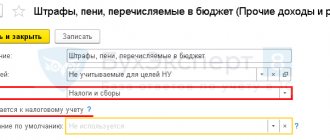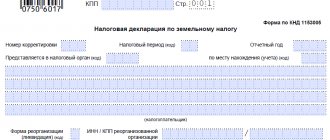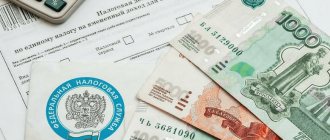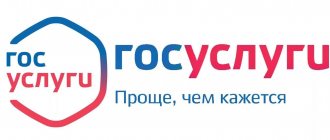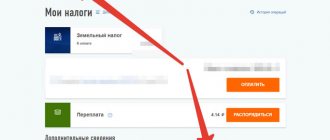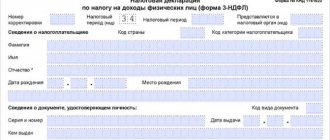Exemption from VAT under Article 145 of the Tax Code of the Russian Federation
Exemption from VAT, obtained in accordance with Article 145 of the Tax Code of the Russian Federation, applies to all activities of the taxpayer, and not to certain types of business or operations. At the same time, it does not exempt from payment of import and agency VAT (clause 3 of Article 145, Article 161 of the Tax Code of the Russian Federation).
Both organizations and individual entrepreneurs can be exempt from VAT. The main thing is that the amount of revenue from the sale of goods and services (excluding VAT) for the 3 previous consecutive calendar months does not exceed 2 million rubles. (clause 1 of article 145 of the Tax Code of the Russian Federation).
Please note that the calculation will only need to include revenue from VAT-taxable transactions.
In any case, the following will not be able to receive VAT exemption:
- persons selling excisable goods;
- organizations that are exempt from VAT, as participants in the Skolkovo project;
- newly created organizations and newly registered individual entrepreneurs in the first 3 months of work.
Exemption from VAT in 2021
The VAT exemption can be applied from the first day of any month during the calendar year. In this case, it is important to inform your Federal Tax Service no later than the 20th day of the month from which you began to use the exemption. That is, if you started using it on June 6, then it is important to submit information about this before June 20.
Note! As of April 1, 2019, a new form of notification of VAT exemption comes into force.
The form of the message today is a notification about the use of the right to exemption from the taxpayer’s obligations related to the calculation and payment of VAT.
The following documents must be submitted along with the notification:
- extract from the balance sheet (for legal entities);
- an extract from the books of income and expenses and business transactions (for individual entrepreneurs);
- extract from the sales book.
Statements are drawn up in any form, but taking into account that the amount of revenue for the previous 3 months should be clearly visible.
GLAVBUKH-INFO
You must notify the tax office at your place of registration of your intention not to pay VAT (clause 3 of Article 145 of the Tax Code of the Russian Federation). This must be done no later than the 20th day of the month from which you began to use the exemption from taxpayer obligations. In particular, the following documents must be submitted to the tax office. 1. Notification of the exercise of the right to exemption. The Notification form was approved by Order of the Ministry of Taxes and Taxes of Russia dated July 4, 2002 N BG-3-03/342 (for a sample of filling out the Notification, see Appendix 1 to Chapter 2). 2. Extract from the balance sheet (for organizations). 3. Extract from the sales book. 4. Extract from the book of income and expenses and business transactions (for individual entrepreneurs). 5. A copy of the journal of received and issued invoices (paragraph 2, paragraph 3, paragraph 6, article 145 of the Tax Code of the Russian Federation). The forms of these statements are not established either by the Tax Code of the Russian Federation or by any other document. Tax inspectorates also do not have strict requirements for the form of such documents. Therefore, they can be presented in any form. The main thing is that the amount of revenue is visible from these documents. As for the extract from the balance sheet, in practice taxpayers submit either a certificate of revenue, which indicates the total amount of revenue excluding VAT for three months and broken down by month, or copies of the balance sheet and profit and loss statement, or one profit and loss statement. An extract from the sales book is usually presented in the form of a certificate, which indicates the total line for the book for three months. At the same time, tax authorities do not require it to be confirmed by a balance sheet and (or) a sales book. They are only interested in the total revenue for three months (the bottom line) for the book. Regarding copies of logs of received and issued invoices, tax authorities are only interested in the list of such invoices. In practice, it is enough to present such a list. If you provide copies of the journals, the tax authorities will not require you to confirm them with invoices. All specified documents are allowed to be submitted either in person or by registered mail. However, in the latter case, only the sixth working day from the date of sending the registered letter will be considered the day of their submission (clause 7 of Article 145 of the Tax Code of the Russian Federation). Therefore, you should send documents by mail six working days before the deadline.For example, if you stopped paying VAT on February 1, 2011, then a notification with documents must be submitted to the tax office no later than February 21, 2011 (Clause 7, Article 6.1 of the Tax Code of the Russian Federation). If you decide to submit documents by mail, they must be sent no later than February 11.
There is no need to wait for any decision from the tax inspectorate, since the exemption is of a notification and not a permitting nature (see Resolution of the Federal Antimonopoly Service of the Volga Region dated September 22, 2008 N A65-1347/08). Please note that after sending all the documents to the tax office, you will not be able to voluntarily refuse the exemption under Art. 145 Tax Code of the Russian Federation. Therefore, until 12 consecutive calendar months have expired from the beginning of the exemption, you will not be able to return to the general procedure for calculating and paying VAT (clause 4 of Article 145 of the Tax Code of the Russian Federation). However, there are two exceptions to this rule. You may lose the right not to pay VAT early in the following cases: - when the total three-month revenue exceeds 2 million rubles; — when you start selling only excisable goods or excisable goods simultaneously with non-excise ones without maintaining separate records (clause 5 of article 145 of the Tax Code of the Russian Federation). In such situations, the right to exemption is lost from the 1st day of the month in which the specified excess occurred or excisable goods were sold (clause 5 of Article 145 of the Tax Code of the Russian Federation).
IF YOU HAVE USED A SPECIAL MODE (USKHN, USN, UTII) PREVIOUSLY
If you are switching to the OSN from a simplified taxation system, then to confirm your right to exemption from VAT, it will be enough to bring to the tax office only an extract from your book of income and expenses (paragraph 6, clause 6, article 145 of the Tax Code of the Russian Federation). Let us recall that the form of the book was approved by Order of the Ministry of Finance of Russia dated December 31, 2008 N 154n. An essentially similar rule has been established for entrepreneurs who previously paid the unified agricultural tax (paragraph 7, paragraph 6, article 145 of the Tax Code of the Russian Federation). They also submit only an extract from their income and expense ledger. The form of such a book is approved by Order of the Ministry of Finance of Russia dated December 11, 2006 N 169n. As for organizations and individual entrepreneurs that have switched to the general regime with UTII, a separate list of documents confirming the right to exemption from VAT has not been established for them. At the same time, submit the documents provided for in paragraph. 2 - 5 p. 6 tbsp. 145 of the Tax Code of the Russian Federation, these persons cannot, since they do not keep a sales book and a log of received and issued invoices. And individual entrepreneurs who pay UTII do not keep a book of income and expenses and business transactions of an individual entrepreneur (clause 3 of the Procedure for recording income and expenses and business transactions for individual entrepreneurs, approved by Order of the Ministry of Finance of Russia N 86n, Ministry of Taxes of Russia N BG-3-04 /430 dated 08/13/2002). Tax authorities can take advantage of this omission by the legislator. Therefore, there is a possibility that these taxpayers will not be able to freely exercise their right to VAT exemption until they have worked under the general regime for three months. After all, only after this they will have the opportunity to submit the necessary documents to the tax authorities. However, the Federal Antimonopoly Service of the North-Western District on this issue, in Resolution No. A44-923/2009 dated December 9, 2009, indicated that an entrepreneur has the right to apply an exemption from VAT from the moment of transition to the general regime. The court took into account that the amount of the entrepreneur’s revenue for the three months preceding the month of transition to the general regime did not exceed 2 million rubles. Since the right to exemption from VAT is mainly determined by the amount of revenue, the absence of those listed in paragraph 6 of Art. 145 of the Tax Code of the Russian Federation, due to the use of UTII in the previous period, does not interfere with obtaining such an exemption.
WE RESTORE VAT IN CASE OF EXEMPTION FROM THE OBLIGATIONS OF A VAT PAYER
After sending all the necessary documents to the tax office, you must restore in accounting and pay to the budget the amounts of “input” VAT that were previously accepted for deduction (clause 8 of Article 145 of the Tax Code of the Russian Federation). It is necessary to restore and pay to the budget the “input” tax on those goods (works, services) that you purchased before the start of the exemption for activities subject to VAT. Since you will use these goods (works, services) in activities exempt from VAT, the amounts of “input” VAT on them must be restored. VAT should be restored by reducing tax deductions. This must be done in the last tax period before the application of the exemption begins (clause 8 of Article 145 of the Tax Code of the Russian Federation).
Note In addition to the application of exemption from taxpayer obligations, the Tax Code of the Russian Federation establishes several more grounds for the restoration of “input” VAT. You can find out more about this in section. 13.4 “Restoration of “input” VAT.”
According to the position of the Ministry of Finance of Russia, tax amounts accepted for deduction on fixed assets are subject to restoration from the residual value formed according to accounting data (Letter dated April 12, 2007 N 03-07-11/106). A similar point of view is given in the Resolution of the Federal Antimonopoly Service of the Volga-Vyatka District dated April 14, 2011 N A43-14553/2010. However, according to some judges, if the depreciation of fixed assets used in activities subject to VAT is not completed, there is no need to restore VAT on them (see Resolution of the Federal Antimonopoly Service of the Far Eastern District dated June 1, 2010 N F03-3642/2010).
EXAMPLE of VAT recovery
Situation
From July 1, the Alpha organization decided to exercise the right to be exempt from the duties of a VAT payer. On July 11, the organization submitted to the tax office a Notification of the use of the right to exemption and relevant documents. In March, the organization purchased goods with a total cost of 118,000 rubles, including VAT of 18,000 rubles, which were not sold until July and were listed as balances in the warehouse. “Input” VAT in the amount of 18,000 rubles. was accepted for deduction according to the declaration for the first quarter.
Solution
After sending the notification and relevant documents, the Alpha organization is obliged to restore the amount of “input” tax on the balances of goods not sold before July 1. In this case, the amount of tax to be restored is 18,000 rubles. Consequently, by entry in June, the organization restores in the accounting of VAT accepted for deduction when purchasing goods, which is reflected in the credit of account 68 and the debit of account 19. The amount of VAT restored for payment is reflected in other expenses by entries in the credit of account 19 in correspondence with account 91-2 (Clause 11 of the Accounting Regulations “Expenses of the Organization” PBU 10/99, approved by Order of the Ministry of Finance of Russia dated 06.05.1999 N 33n, Instructions for the use of the Chart of Accounts for accounting financial and economic activities of organizations, approved by Order of the Ministry of Finance of Russia dated 31.10.2000 N 94n). In the VAT return for the second quarter, the specified amount is reflected on line 090 in column 5 of section. 3 “Calculation of the amount of tax payable to the budget for transactions taxed at the tax rates provided for in paragraphs 2 - 4 of Article 164 of the Tax Code of the Russian Federation” (paragraph 1, clause 38.6 of the Procedure for filling out a VAT return).
LIMITATION ON THE AMOUNT OF REVENUE AS A CONDITION OF APPLICATION OF THE EXEMPTION
A limitation on the amount of revenue is one of the necessary conditions for applying the exemption. If the amount of your revenue for three consecutive calendar months exceeds 2 million rubles, then you will lose the right to exemption. From the 1st day of the month in which such an excess occurs, you must again begin calculating and paying VAT (clause 5 of Article 145 of the Tax Code of the Russian Federation, Letter of the Ministry of Finance of Russia dated 05/06/2010 N 03-07-14/32). Please note that tax authorities can check your income for any three-month periods contained in 12 months. For example, for January - March, February - April, March - May, April - June, May - July, etc. Thus, you must monthly analyze the total three-month revenue to ensure that it exceeds RUB 2 million. (see Resolutions of the Presidium of the Supreme Arbitration Court of the Russian Federation dated August 12, 2003 N 2500/03, FAS Volga District dated February 27, 2007 N A49-3926/2006, FAS Volga-Vyatka District dated September 27, 2005 N A29-10838/2004a).
Note You can also find out more about the practice of arbitration courts on this issue in the Encyclopedia of VAT Disputes.
The amount of VAT on transactions carried out in the month in which revenue exceeded 2 million rubles should be restored and paid to the budget (clause 5 of Article 145 of the Tax Code of the Russian Federation). You will have to pay VAT either from your own funds, or from the funds of buyers of goods (works, services) in the event that they have made an additional payment in the amount of tax. This position was expressed by the Ministry of Finance of Russia in a private Letter dated May 29, 2001 N 04-03-11/89. At the same time, if you have lost the right to exemption, you have the right to deduct “input” VAT on goods (work, services) purchased during the exemption and used after the VAT refund (clause 8 of Article 145 of the Tax Code of the Russian Federation) .
EXAMPLE of termination of exemption and VAT refund
Situation
Organization Alpha uses the right to release from January 1st. Revenue from the sale of goods received by the organization in June, July and August amounted to 650,000, 600,000 and 900,000 rubles, respectively. The total revenue for three consecutive calendar months is equal to RUB 2,150,000. The actual cost of goods sold in August amounted to 354,000 rubles, including “input” VAT of 54,000 rubles, which the organization paid to the supplier (clause 3, clause 2, article 170 of the Tax Code of the Russian Federation). Thus, the organization lost the right to exemption in accordance with Art. 145 of the Tax Code of the Russian Federation from August 1, but discovered this only after a month.
Solution
The Alpha organization exceeded its revenue in August.
Consequently, from August 1, the organization is recognized as a VAT payer. From August revenue in the amount of 900,000 rubles. The organization must accrue and pay tax to the budget by October 20. The VAT amount will be 162,000 rubles. (RUB 900,000 x 18%). VAT accrual is reflected in the debit of account 91, subaccount 91-2, in correspondence with the credit of account 68. For the purpose of calculating income tax, the specified amount is not taken into account on the basis of clause 49 of Art. 270 of the Tax Code of the Russian Federation as expenses that do not meet the criteria specified in paragraph 1 of Art. 252 of the Tax Code of the Russian Federation (for additional information, see Letter of the Ministry of Finance of Russia dated May 29, 2001 N 04-03-11/89). In this regard, a permanent difference and a corresponding permanent tax liability arise in the organization’s accounting, which is reflected in the debit of account 99 in correspondence with the credit of account 68 (clauses 4, 7 of the Accounting Regulations “Accounting for calculations of corporate income tax” PBU 18/02, approved by Order of the Ministry of Finance of Russia dated November 19, 2002 N 114n). Since the organization has lost the right to exemption in accordance with Art. 145 of the Tax Code of the Russian Federation from August 1, and discovered this only after a month, then at the time of discovery the actual cost of goods sold was written off as the cost of sales. Therefore, the organization should adjust the cost of sales by the amount of VAT that is subject to deduction. In accounting, this adjustment can be reflected by a reversal entry in the debit of account 90, subaccount 90-2, in correspondence with the credit of account 41. Accordingly, a decrease in the actual cost of goods can be reflected in a reversal entry in the debit of account 41 and the credit of account 19. Contents of transactions
| Debit | Credit | Amount, rub. | Primary document | |
| Revenue for goods sold is recognized | 62 | 90-1 | 900 000,00 | Packing list |
| The actual cost of goods sold is written off | 90-2 | 41 | 354 000,00 | Accounting certificate-calculation |
| VAT is charged on proceeds from the sale of goods due to the loss exemption under Art. 145 Tax Code of the Russian Federation (900 000*18%) | 91-2 | 68 | 162000,00 | Invoice |
| A permanent tax liability is reflected (162,000*20%) | 99 | 68 | 32400,00 | Accounting certificate calculation |
| REVERSE On the actual cost of goods sold in terms of VAT, deductible | 90-2 | 41 | 54000,00 | Accounting certificate-calculation |
| REVERSE For the amount of VAT presented by the supplier and included in the actual cost of goods upon purchase | 41 | 19 | 54000,00 | Invoice, Accounting help calculation |
| Accepted for deduction of VAT presented by the supplier of goods | 68 | 19 | 54000,00 | Invoice, bank statement by current account |
EXTENSION OF EXEMPTION OR REFUSAL OF EXEMPTION. SUBMISSION OF DOCUMENTS TO THE TAX AUTHORITY
After 12 calendar months of applying the exemption, you must make one of two decisions: 1) to extend the use of the right not to pay VAT for the next 12 calendar months; 2) about refusal to use such right. After the decision is made, but before the 20th day of the month following the twelfth month, it is necessary to submit to the tax office: 1) supporting documents specified in paragraphs 2 - 5 sections. 2.1.5.1, and Notice of extension of the use of the right to exemption or 2) supporting documents specified in paragraphs 2 - 5 sections. 2.1.5.1, and Notification of refusal to use the right to exemption (clause 4 of Article 145 of the Tax Code of the Russian Federation). For a sample of filling out the Notification, see Appendix 3 to this chapter. When extending the right to exemption, the Notification form approved by Order of the Ministry of Taxes and Taxes of Russia dated July 4, 2002 N BG-3-03/342 can be used. In case of refusal to use the right to exemption, the Notification is submitted to the tax authority in any form (Letter of the Ministry of Taxes and Taxes of Russia dated September 30, 2002 N VG-6-03 / [email protected] ). You can find a sample of filling out such a Notification in Appendix 3 to this chapter.
Note! The taxpayer must submit documents confirming the amount of revenue for the past 12 calendar months to the tax office, regardless of the decision made. If you have not submitted such documents, then the refusal of the tax authorities to extend the exemption is lawful (see Letter of the Ministry of Finance of Russia dated March 26, 2007 N 03-07-11/73).
Currently, tax legislation does not regulate the question of whether it is necessary to submit documents that confirm the right to be exempt from VAT payer obligations if you decide to switch to a special regime before the expiration of the exemption period. This question arises due to the fact that in such a situation, after a year from the date of receipt of the exemption, you are no longer a VAT payer and formally the norms of Chapter. 21 of the Tax Code of the Russian Federation on release are not applicable to you. According to the Presidium of the Supreme Arbitration Court of the Russian Federation, documents in this case do not need to be submitted. The court indicated: since at the time of the deadline for confirming the right to exemption, the “special regime” was not a VAT payer, then the obligation to submit the provisions provided for in Art. 145 of the Tax Code of the Russian Federation does not apply to this document. This position is formulated in the Resolution of the Presidium of the Supreme Arbitration Court of the Russian Federation dated October 27, 2009 N 13243/08. Let us note that this Resolution canceled the Resolution of the Federal Antimonopoly Service of the West Siberian District dated April 27, 2009 N F04-2487/2009 (5370-A03-25), which came to the opposite conclusion: the transition to a special regime does not relieve the taxpayer from the obligation to document his right not to pay the VAT that he used before such a transition.
If, after 12 calendar months, you have not submitted the documents specified above, or have submitted documents with inaccurate information, the amounts of VAT that you did not pay are subject to restoration and payment to the budget (see also Resolution of the Federal Antimonopoly Service of the Volga-Vyatka District dated 02.03. 2010 N A82-8534/2009). In this case, penalties and fines are charged on the specified amounts (paragraph 3, paragraph 5, article 145 of the Tax Code of the Russian Federation). There are situations when all documents confirming the application of the exemption have been submitted, but a Notice of Extension of Exemption Rights has not been submitted. In this case, the taxpayer does not have to restore and pay VAT for the period in which the exemption was actually used. As the court pointed out, the Notification does not apply to documents, the failure of which entails the obligation to restore the tax (Resolution dated July 22, 2008 N F09-5261/08-S2 (remained in force by the Determination of the Supreme Arbitration Court of the Russian Federation dated December 19, 2008 N VAS-15993/08)) . And the Federal Antimonopoly Service of the Volga-Vyatka District recognized that the taxpayer lost the right to exemption because he did not submit a Notice of extension of the right to exemption within the specified period (Resolution dated January 11, 2010 N A43-13450/2009). If you submitted all the necessary documents, but in violation of the established deadline, you do not have to recover VAT. The tax authorities will not be able to hold you accountable or charge penalties (Resolutions of the Federal Antimonopoly Service of the Ural District dated 02.21.2011 N F09-11622/10-S2, FAS Volga District dated 08.10.2010 N A49-11485/2009, dated 12.24.2009 N A06 -4554/2009).
Also, adverse consequences in the form of corresponding amounts of tax sanctions and penalties await the taxpayer in case of non-compliance with the established restrictions on the revenue limit and type of activity (paragraph 3, paragraph 5, article 145 of the Tax Code of the Russian Federation).
Note For non-payment or incomplete payment of tax, an organization or entrepreneur may be subject to a fine of 20% of the unpaid amounts. If the non-payment (incomplete payment) of the tax was committed intentionally, the fine will be 40% of the unpaid amounts. Such liability is established by Art. 122 of the Tax Code of the Russian Federation.
ConsultantPlus, 07/07/2011
| < Previous | Next > |
Application of VAT exemption
The application of VAT exemption is of a notification nature, so there is no need to wait for approval from the inspectorate.
In addition, you are not obligated to:
- calculate and pay VAT, except in cases where he issues an invoice with a separate tax;
- submit a VAT return;
- keep a purchase book.
Taxpayer exempt from VAT:
- Is not exempt from issuing an invoice to the buyer. In invoices, it does not highlight VAT, but makes the inscription: “Without VAT” (Clause 5 of Article 168 of the Tax Code of the Russian Federation).
- Must keep a sales book (subclause 1, clause 3, article 169 of the Tax Code of the Russian Federation, clause 1 of the Rules for maintaining a sales book used in calculations of value added tax, approved by Decree of the Government of the Russian Federation of December 26, 2011 No. 1137.
- Does not have the right to deduct VAT (subclause 1, clause 2, article 171, subclause 3, clause 1, article 170 of the Tax Code of the Russian Federation).
- Includes VAT presented by suppliers in the cost of goods, works, services (subclause 3, clause 1, article 170 of the Tax Code of the Russian Federation).
- Obliged to restore deductible VAT from the cost of goods (work, services), fixed assets, intangible assets that will be used during the exemption period. Restoration must be made in the last tax period before the start of using the exemption, if the tax exemption begins from the first month of the quarter or, if the exemption is applied from the second or third month of the quarter, then in the same quarter when the application of the exemption began (clause 8 of Art. 145 of the Tax Code of the Russian Federation).
At the same time, in some circumstances the right to exemption from VAT can be lost, namely in cases where (clause 5 of Article 145 of the Tax Code of the Russian Federation):
- revenue for any 3 months will exceed 2 million rubles;
- The sale of excisable goods will begin.
Please note that once you start using this VAT exemption, you will not be able to refuse it within 12 calendar months (clause 4 of Article 145 of the Tax Code of the Russian Federation), after which you must submit to the Federal Tax Service:
- documents confirming that during the exemption period your revenue for every 3 consecutive calendar months did not exceed 2 million rubles;
- notification of the extension of the VAT exemption for the next 12 calendar months or of its refusal.
Taxpayers who have lost their right to exemption
The legislation of the Russian Federation establishes a certain circle of persons who, for some reason, have lost their legal right to receive exemption from tax obligations in relation to the payment of VAT .
Such persons include taxpayers whose activities are directly related to excisable goods, and they were sold during the period of three calendar months preceding the moment the interested person applied to the tax authority. At the same time, excisable products include: alcoholic beverages and tobacco products, fuel, etc.
If such persons contact the relevant tax organization, it will issue them a lawful refusal to satisfy the submitted requirements.
In situations where an organization carries out several types of legal activities, and the sale of excisable goods is only one of them, it has the right to apply for an exemption in respect of other types of activities.
The second category of persons who do not have the right to claim exemption from tax obligations can be called heads of organizations and individual entrepreneurs whose profit for a certain tax period amounted to two or more million rubles. The established period is equal to three calendar months.
Author of the article
Who exactly is exempt from paying VAT under Art. 149 of the Tax Code of the Russian Federation?
Exemption from VAT under Art. 149 of the Tax Code of the Russian Federation is applied not to the activities of an organization or individual entrepreneur as a whole, but to individual operations. That is, in essence, any individual entrepreneur, regardless of his activities, can be exempt from payment if he performs these operations. In the article of the Tax Code you can see the full list, but we will give some of them:
- sale of medical services;
- sale of some domestic and foreign medical goods according to the list approved by the Government of the Russian Federation;
- realization of exclusive rights to inventions, utility models, industrial designs, computer programs, databases, topologies of integrated circuits, production secrets (know-how), as well as rights to use the specified results of intellectual activity on the basis of a license agreement;
- sale of shares in the authorized (share) capital of organizations, securities;
- Bank operations;
- loan transactions, including interest, etc.
In addition to the full list of operations, in Article 149 you can also find out additional conditions for applying the exemption for operations - such as the availability of a license or a set of necessary supporting documents.
There is no need to obtain this VAT exemption in a special way or notify the tax authorities about its application. Just follow the established art. 149 of the Tax Code of the Russian Federation conditions.
Algorithm of actions for individual entrepreneurs
If an individual entrepreneur operates using an online cash register or has a special bank account to record revenue, then, apart from the application, no additional documents need to be submitted, since tax authorities check the information independently within the framework of their powers.
If there is no separate account, and the cash register was used offline, then the amount of imputed income for UTII purposes or other documentation reflecting the real amount of revenue can be used as confirmation of the amount of revenue received.
Waiver of release
For the operations specified in Article 149, refusal of exemption is also possible. Why is it needed? For example, it allows the payer to apply VAT deductions and not maintain separate accounting. If you want to take advantage of this opportunity, submit a corresponding application to the Federal Tax Service no later than the first day of the tax period for which you want to work without exemption.
You can refuse VAT exemption in relation to:
- all operations from clause 3 of Art. 149 Tax Code of the Russian Federation;
- individual operations from clause 3 of Art. 149 Tax Code of the Russian Federation;
- one of the operations of clause 3 of Art. 149 of the Tax Code of the Russian Federation.
The refusal is issued for a minimum of 12 months.
How to bring order to tax reporting?
It is most effective to contact a company that professionally provides consulting services on tax payments and reporting or immediately order full support. We invite you to visit us!
Why do they trust us?
- Extensive work experience. It helps us know in advance all the pitfalls of taxation and reporting, as well as avoid many common mistakes.
- Multidisciplinary. We employ not only accountants, but also lawyers.
- Services from a team of specialists. You do not depend on one person and receive multi-level verification of work.
Call us at the phone number listed on the website or fill out the feedback form so that the company’s employees can advise you on the exact cost and tell you how to start cooperation.
